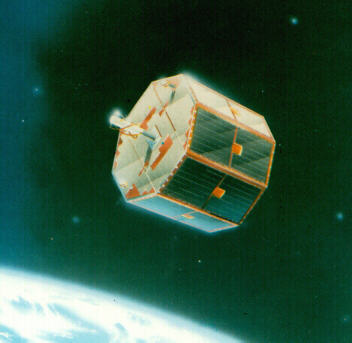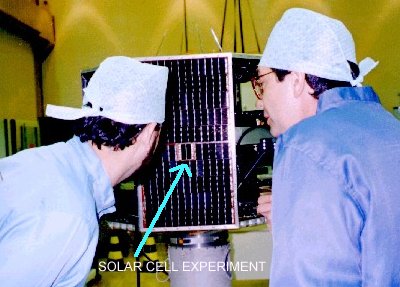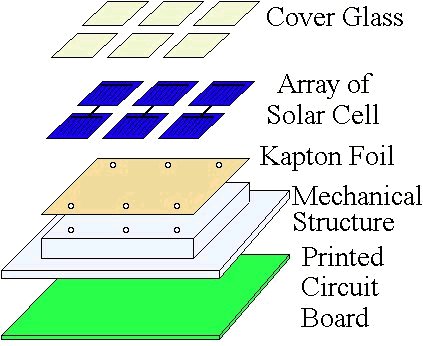SOLAR CELL EXPERIMEN |
T OF THE SCD1 SATELLITE |
The Brazilian Complete Space Mission (MECB) comprises the development and operation in orbit of small satellites with applications in environmental data collection and remote sensing, directed to specific Brazilian needs. SCD1 (First Data Collection Satellite) was the first satellite designed, manufactured, integrated and tested in Brazil. More information about this Mission and satellite is in the web-page: http://www.las.inpe.br/~veissid/eng18.html. For basic research study purposes, a experiment of the solar cells (ESC) flies with this satellite. This experiment was totally developed and produced in Brazil. It intend to obtain domain in the area of the silicon solar cell fabrication in the Brazil. |
SCD1 satellite in orbit |
Position of the Experimento of the Solar Cells lateral panel of the satellite from INPE |
The ESC has the objective of studying the degradation of solar cells of silicon with the irradiation for ionizing particles (electrons and protons of high energy) found in the space. These particles deteriorate the semiconductor crystaline substrate of the solar cell and, consequently, its performance is reduced during the life of the satellite. The solar cells of the experiment are of monocrystaline silicon 2cmx2cm and they were manufactured by the researchers of LAS/INPE using infrastructure of the Microelectronic Laboratory of the Polytechnic University of USP (LME/EPUSP) in São Paulo-SP. |
The ESC is a sub-system of the SCD1 satellite and it is composed by cover glass, array of six solar cells linked in series, a Kapton foil that isolates the cells of the mechanical structure of aluminum and the printed circuit board that contain the components of the electrical conditioning circuit of ECS for the satellite telemetry. More information about the theory, description and results of this experiment can be found in the following articles: XXXXX.pdf e YYYYY.pdf |
Diagram of the Experiment |


